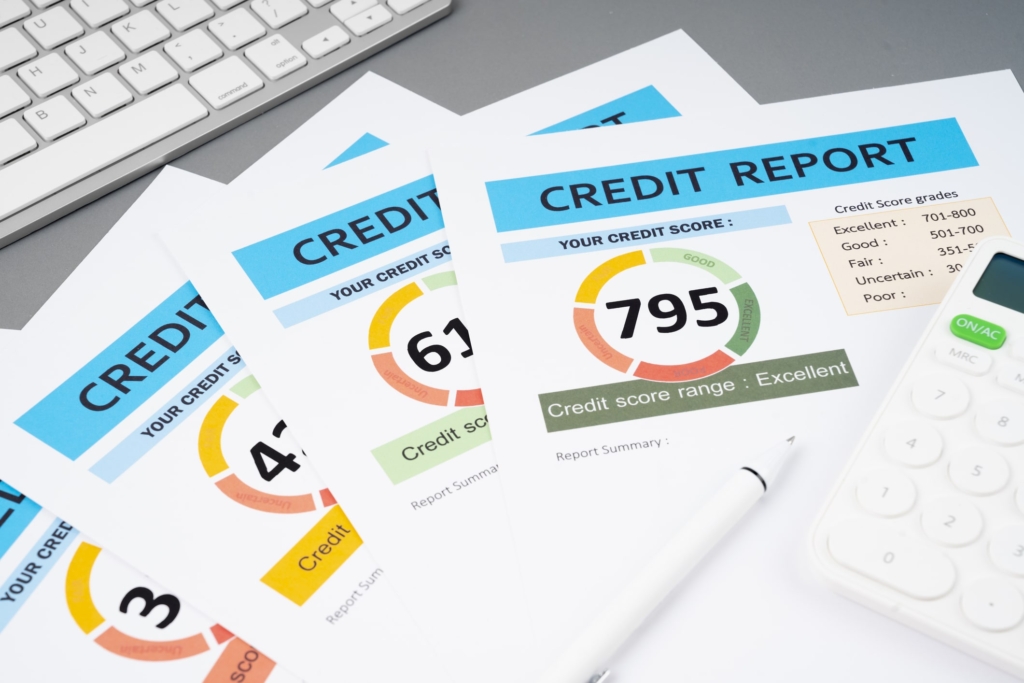
We’ve all heard about the potential perils of having too many credit checks in too short a timeframe. But not all credit checks are equal and knowing the differences between soft and hard credit checks can be important when you’re deciding whether to apply for a loan or simply examine your credit report.
In this blog, we’ll break down soft credit checks, explore how they affect your credit score, and dive into the details of hard vs. soft credit checks. By the end, you’ll have a greater understanding of the soft credit check facts you need to make the best financial decisions!
Put simply, a soft credit check is a basic credit inquiry performed by prospective lenders or employers that usually involves a brief glance at certain aspects of your credit file to help determine a general baseline of creditworthiness. In most cases, these entities will view:
By contrast, a hard credit check typically involves a more, in-depth review of your credit file and includes a closer look at your credit report, score, and history. When a creditor or other party performs a soft credit check they get a very general overview of your creditworthiness – which can impact everything from what loans you’re eligible for to what kind of interest rates you can expect to pay.
Inquiries on your credit might be necessary in a variety of different situations. For instance, when you submit an application for a new loan or credit card, a lender may first perform a soft credit check to determine whether you meet initial guidelines before performing a hard inquiry.
There are other instances when you or other entities might make a soft credit check, including when:

Yes. Whenever a soft credit check is made, the record of that check remains on your report for a few years. This is a good way to see who’s keeping track of your credit score – if, for instance, you notice a company you don’t recognize constantly checking your credit, it may be a good idea to contact them to get them to stop.
Soft credit checks are related to hard credit checks, but there are key differences between the two types of credit inquiries.
A hard credit check is a thorough examination of your credit record and report. A lender, employer, or other entity might look over every single line item in your credit report for the purposes of loan approval, job qualification, or something else. Hard credit checks are unavoidable in certain circumstances or when you apply for certain financial instruments. These include:
A soft credit check does not affect your credit score whatsoever, meaning that when a lender or employer performs one, your score won’t decrease. The same is true if you check your credit report by a provider that supplies that as a complimentary service.
Hard credit checks usually affect your credit score by reducing your score by a certain number of points. While the number of points may vary, one can expect their credit score to go down slightly each time a hard inquiry is completed, but the effect could be minimal depending on the rest of your credit report.

Soft credit checks don’t matter for your credit score because they’re not tied to an actual application for credit and therefore have not impact to your overall score. However, it’s important to remember that other factors can impact your score, and those can include:
But even if your credit report has factors impacting your score or it shows a few hard checks, don’t think that prevents you from accessing great auto loans, vacation loans, and more. If your credit was already healthy, a few points lost shouldn’t close many financial doors.
Since soft credit inquiries don’t affect your credit score, you can (theoretically) get them as many times as you need without seeing any negative impact on your overall score. These types of checks will typically stay on your credit report for 2 years, but there’s no real downside to having them.
It’s a similar story with hard credit checks, the main difference being that these can potentially lower your credit score by a few points. For this reason, it’s wise not to have too many in hard credit checks in rapid succession.
To wrap things up, remember that doing due diligence and researching potential creditors is paramount to help finding the right loan for your situation. Once you find the ideal lending solution for your needs, you can use the tools and information you learned to apply for a loan without potentially wasting a hard credit check for something you might not be approved for anyways. Be sure to do your research carefully – it’s the key to getting the right loans while keeping your credit score intact!
Sources:
https://www.experian.com/blogs/ask-experian/what-is-a-soft-inquiry/
https://www.transunion.com/blog/credit-advice/the-difference-between-hard-and-soft-credit-inquiries
You can prequalify for your personal loan online in just minutes by clicking prequalify now. Or, if you prefer, call or stop by your local branch to get the process started. Our loan specialists can answer any questions you may have such as what a personal loan is, understanding personal loan interest rates, and how to qualify for a personal loan. We’ll help you fill out an application for the type of loan that fits your needs.